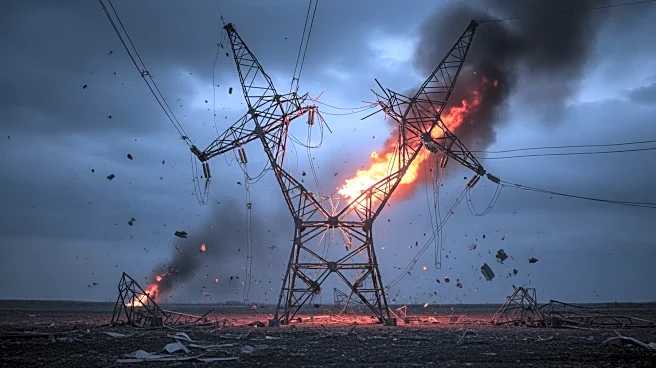What's Happening?
A Russian aerial attack on Kyiv targeted energy sites, resulting in the deaths of two individuals and injuries to 13 others, according to Ukrainian officials. The strike caused multiple fires and damaged residential infrastructure, including a kindergarten.
The attack is part of ongoing hostilities between Russia and Ukraine, with Kyiv frequently being a focal point of military aggression. Firefighters are actively working to manage the aftermath of the missile strike, which has further strained the city's resources and emergency response capabilities.
Why It's Important?
The attack on Kyiv's energy infrastructure highlights the persistent threat to civilian areas in the ongoing Russia-Ukraine conflict. The damage to essential services like energy and education facilities exacerbates the humanitarian crisis, affecting daily life and safety for residents. The international community continues to monitor the situation, with potential implications for diplomatic relations and support for Ukraine. The strikes underscore the strategic importance of energy sites in warfare, impacting both local and broader geopolitical dynamics.
What's Next?
Ukraine is likely to seek increased international support and aid to address the immediate needs resulting from the attack. The government may also enhance its defense measures to protect critical infrastructure from future strikes. Diplomatic efforts to resolve the conflict could intensify, with potential involvement from global powers seeking to mediate or influence outcomes. The situation remains volatile, with further military actions possible as tensions persist.
Beyond the Headlines
The targeting of energy sites raises ethical questions about the conduct of warfare and the protection of civilian infrastructure. Long-term impacts may include shifts in energy security strategies and increased investment in resilient infrastructure to withstand military threats.















